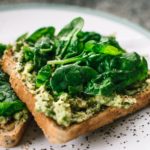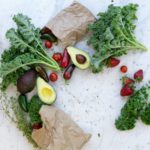The following is a list of the healthiest foods that you can get. This will help you get an idea as to what foods are the best for your body.
Fruits
Apricots
Apricots contain Beta-carotene which helps to prevent radical damage and also helps to protect the eyes. A single apricot contains 17 calories, 0 fat, and one gram of fiber. You can eat them dry or soft.
Mango
A medium-sized mango packs 57 MG of vitamin C, which is nearly your entire daily dose. This antioxidant will help prevent arthritis and also boost your immune system.
Cantaloupe
Cantaloupes contain 117 GG of vitamin C, which is almost twice the recommended dose. Half a melon contains 853 MG of potassium, which is nearly twice as much as a banana, which helps to lower blood pressure. Half a melon contains 97 calories, 1 gram of fat, and 2 grams of fiber.
Tomato
Tomato can help cut the risk of bladder, stomach, and colon cancers in half if you eat one daily. Tomato contains 26 calories, 0 fat, and only1 a gram of fiber.
Vegetables
Onions
An onion can help to protect against cancer. A cup of onions offers 61 calories, 0 fat, and 3 grams of fiber.
Broccoli
Broccoli can help protect against breast cancer, and it also contains a lot of vitamin C and beta-carotene. One cup of chopped broccoli contains 25 calories, 0 fat, and 3 grams of fiber.
Spinach
Spinach contains carotenoids that can help fend off macular degeneration, which is a major cause of blindness in older people. One cup contains 7 calories, 0 fat, and 1 gram of fiber.
Grains, beans, and nuts
Peanuts
Peanuts and other nuts can lower your risk of heart disease by 20 percent. One ounce contains 166 calories, 14 grams of fat, and over 2 grams of fiber.
Pinto beans
A half-cut of pinto beans offers more than 25 percent of your daily folate requirement, which protects you against heart disease. Half a cup contains 103 calories, 1 gram of fat, and 6 grams of fiber.
Skim milk
Skim milk offers vitamin B2, which is important for good vision and along with Vitamin A could improve allergies. You also get calcium and vitamin D as well. One cup contains 86 calories, 0 fat, and 0 fiber.
Seafood
Salmon
All cold-water fish such as salmon, mackerel, and tuna are excellent sources of omega-3 fatty acids, which help to reduce the risk of cardiac disease. A 3-ounce portion of salmon contains 127 calories,4 grams of fat, and 0 fiber.
Crab
Crab is a great source of vitamin B12 and immunity-boosting zinc. A 3-ounce serving of crab offers 84 calories, 1 gram of fat, and 0 fiber.
DISCLAIMER:
This information is not presented by a medical practitioner and is for educational and informational purposes only. The content is not intended to be a substitute for professional medical advice, diagnosis, or treatment. Always seek the advice of your physician or other qualified healthcare providers with any questions you may have regarding a medical condition. Never disregard professional medical advice or delay in seeking it because of something you have read.
Since natural and/or dietary supplements are not FDA-approved they must be accompanied by a two-part disclaimer on the product label: that the statement has not been evaluated by FDA and that the product is not intended to “diagnose, treat, cure or prevent any disease.”





